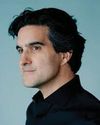
Oslo, with its neatly painted houses and serene waterfront, is not known for high drama. But in 2020, Norway’s capital erupted in controversy over one spectacularly wealthy investor, a splashy event in Philadelphia—and the biggest sovereign wealth fund on the planet.
That spring, Nicolai Tangen, the Norwegian founder of London hedge fund AKO Capital, was picked by Norway’s central bank to be the next CEO of its gargantuan oil-and-gas-financed investment fund, whose value had soared above $1 trillion. It soon emerged that months before his selection, Tangen had flown a private-plane-load of guests to a gathering he had organized with his alma mater, the University of Pennsylvania’s Wharton School. The event featured seminars, fancy dinners, and a $1 million performance by Sting—all at Tangen’s expense. The then CEO of the oil fund, Norway’s trade minister, and the country’s attorney general had all attended.
Such finance-nerd blowouts may be standard fare on Wall Street, but they were a jolt in discreet, low-key Norway. The news ignited a media frenzy and even a parliamentary inquiry over favoritism and conflicts of interest. Above all, the affair was at odds with the country’s squeaky-clean reputation—and with the perception of Norges Bank Investment Management, or NBIM, the fund’s asset manager, as a champion of better corporate governance.
“It got very messy,” says Anja Bakken Riise, executive director of Future in Our Hands, a Norwegian environmental NGO that fiercely opposed Tangen’s appointment. “He’s quite different from what we’ve seen in previous directors.”
この記事は Fortune US の August - September 2024 版に掲載されています。
7 日間の Magzter GOLD 無料トライアルを開始して、何千もの厳選されたプレミアム ストーリー、9,000 以上の雑誌や新聞にアクセスしてください。
すでに購読者です ? サインイン
この記事は Fortune US の August - September 2024 版に掲載されています。
7 日間の Magzter GOLD 無料トライアルを開始して、何千もの厳選されたプレミアム ストーリー、9,000 以上の雑誌や新聞にアクセスしてください。
すでに購読者です? サインイン

The Blackstone Edge
90 DAYS. DOZENS OF INTERVIEWS. BILLIONS ON THE LINE. HOW BLACKSTONE'S CEO-MAKER GETS THE JOB DONE.

When Elon Musk has a really tough job, he turns to Steve Davis. DOGE might do the same.
IT WAS THE FALL OF 2022 when employees at Elon Musk's Boring Company began to notice Steve Davis wasn't around.

ASK ANDY - SHOULD MY STARTUP RAISE MONEY FROM VCS? IF SO, WHICH ONES DO I CHOOSE?
A FRIEND—I’ll call him Allen—spent years bootstrapping his real estate enterprise software company. After a long struggle to get to $1 million in sales, his business recently surged to $10 million, and revenue is now growing 100% year on year.

ELLIOTT HILL - JUST DOING IT
Staffers and brand loyalists cheered when Nike's new CEO came out of retirement to lead the company he has had an “irrational love” for since he began there as an intern. Turning it around will take more than good vibes.

HOW TO PLAN YOUR NEXT $100,000 VACATION
ON AN EXCURSION to the ancient city of Petra, Jordan, clients helicoptered in after-hours so they could tour the ruins alone.

THE BATTLE OVER AG1
Influencers are fighting over it. Scientists scoff at it. But the $100-a-month powder once known as Athletic Greens is only getting more popular.

THE WORKPLACE - GEN ZERS WANT TO BE THEIR OWN BOSS.CAN THE CORPORATE WORLD WOO THEM BACK?
CHASE GALLAGHER WAS 12 years old when he started mowing his neighbors' lawns in Chester County, Pa., for $35 a pop in the summer of 2013. At first the Gen Zer had only two customers, but thanks to some aggressive leafleting, he had 10 clients by the following year.

How much can DOGE do?
Elon Musk and Donald Trump aim to cut as much as $2 trillion in federal spending. It'll be even harder than it sounds.

YOUNG PEOPLE ARE DRINKING LESS ALCOHOL. CAN CEO MICHEL DOUKERIS PERSUADE THEM TO KEEP DRINKING AB INBEV'S BEERS?
SOME TIME AGO, top CEOs at an invitation-only seminar at Harvard Business School were asked to imagine the four crises they would likely confront during their tenure at the top: a health emergency, a geopolitical conflict, an economic downturn, and a trade war.

America's drug middlemen are now a $557 billion industry. Can Trump and his allies 'knock out' PBMs?
IN LATE DECEMBER, President-elect Donald Trump put pharmacy benefit managers, or PBMs, on notice.